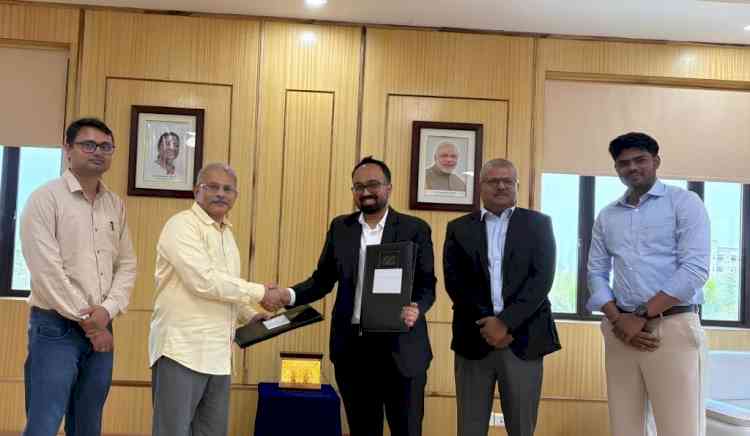Meta gloves to soon let you feel VR objects as if they're real

New Delhi, Nov 17 (IANS) Meta (formerly Facebook) is developing sci-fi haptic gloves that can reproduce a range of sensations in virtual worlds, including texture, pressure and vibration, using air pockets.
The team is building advanced hand-tracking technology to enable it to identify precisely where your hand is in a virtual scene, whether you're in contact with a virtual object and how your hand is interacting with the object.
"Even with a way to control air flow, the system needs to know when and where to deliver the right sensations," Meta said in a statement late on Tuesday.
The company is also developing the world's first high-speed microfluidic processor - a small microfluidic chip that controls the air flow that moves the actuators.
"The use of air (a fluid) means we can fit many more actuators on the glove than would otherwise be possible with electronic circuitry," Meta added.
While the research is still in early stages, the goal is to one day pair the gloves with your VR headset for an immersive experience like playing in a concert or poker game in the metaverse, and eventually they'd work with your AR glasses.
Imagine working on a virtual 3D puzzle with a friend's realistic 3D avatar. As you pick up a virtual puzzle piece from the table, your fingers automatically stop moving as you feel it within your grasp.
"You feel the sharpness of the cardboard's edges and the smoothness of its surface as you hold it up for closer inspection, followed by a satisfying snap as you fit it into place," Meta said.
Building these gloves is a challenge that requires inventing entirely new domains of scientific research.
Existing mechanical actuators create too much heat for such a glove to be worn comfortably all day.
To solve this, Meta is creating new soft actuators - tiny, soft motors all over the glove that move in concert to deliver sensation to the wearer's hand.
"Our haptic renderer sends precise instructions to the actuators on the hand, based on an understanding of things like the hand's location and properties of the virtual objects (such as texture, weight and stiffness) that the hand comes in contact with," the company elaborated.


 IANS
IANS 










